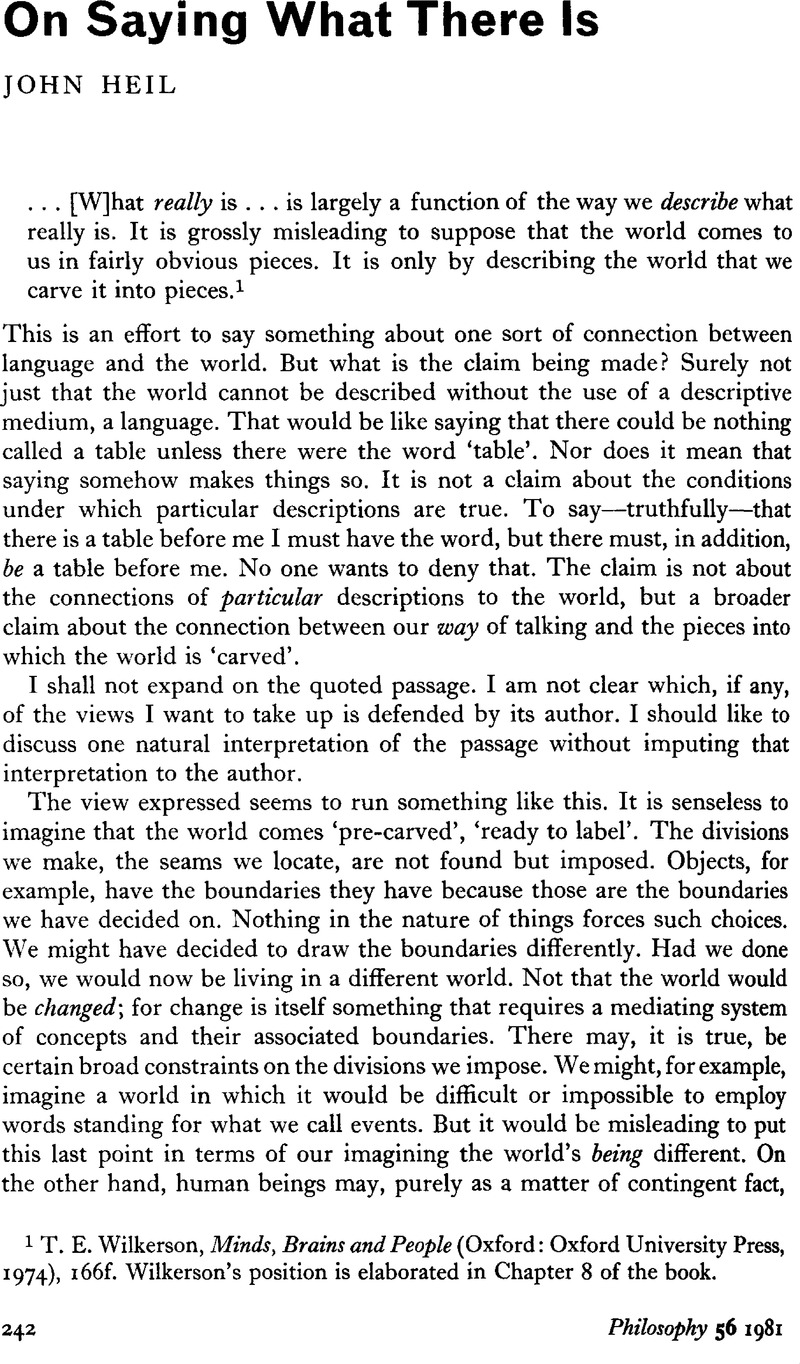No CrossRef data available.
Article contents
On Saying What There Is
Published online by Cambridge University Press: 30 January 2009
Abstract

- Type
- Discussion
- Information
- Copyright
- Copyright © The Royal Institute of Philosophy 1981
References
1 Wilkerson, T. E., Minds, Brains and People (oxford:Oxford University Press, 1974), 166Google Scholar f.Wilkerson' position is elaborated in Chapter 8 of the book
2 Kuhn, Thomas, for example, seems sometimes to want to defend a fairly robust form of conventionalism (cf. The Structure of Scientific Revolutions, 2nd edn (Chicago: University of Chicago Press, 1970)Google Scholar; especially Chapter 10, 111 and 117).
3 Wittgenstein, L., Tractatus Logico-Philosophicus, trans. Pears, D. and McGuinness, B. F. (London: Routledge and Kegan Paul, 1961), 6. 341.Google Scholar
4 Cf. The Critique of Pure Reason, A405/B430ff., especially A444/B472ff.
5 Cf. e.g., Fodor, Jerry, The Language of Thought (New York: Thomas Y. Crowell, 1975).Google Scholar




